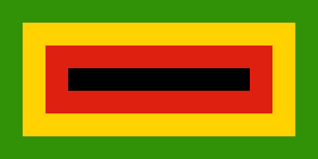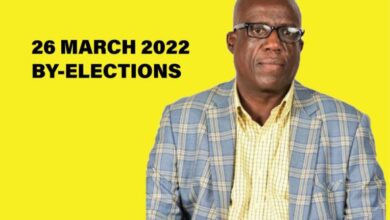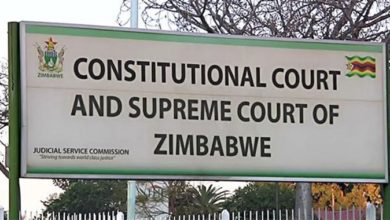Op-Ed: How Zanu came into existence (Part 2)

By Irvine Sibhona
1980 proved to be a pivotal year for Zanu. A lot was at stake. It was either going to be the end of the party or the launchpad to a promising future. The politics at that time was premised on Socialist, Marxist and Capitalist ideologies. The existence of political parties or liberation movements was heavily influenced by the geopolitical environment of that time.
It must also be remembered that Lancaster House talks were forced upon leaders of the front line states by leaders of the West and the East. The liberation movement leaders who were fighting against Rhodesia now Zimbabwe were summoned to a meeting in Maputo Mozambique, and told to head for London as the British were going to hand over the country to them through talks. If they were not interested the condition had been set that they would lose the operational bases that they used to launch their offensive against the Rhodesian army.
Since it was conditional the British had made up their mind that the country would be handed over to whoever they favoured. This would depend on the British interest. As often the British would compel who so ever they offered that political independence. Political conditions for instance were first, issue of land which would remain in the hands of the white men. Secondly, the issue of debt and what to do with Rhodesian Army and Civil Service pensions lastly the defence future expenditure or defence agreements for the new state of Zimbabwe.
While the Lancaster House talks did guarantee the Rhodesian Army and Civil Servants of their pensions the liberation movements were left out of the scheme with the exception that they would join the Armed forces and those who did not have interest would demobilise. The Rhodesians were even guaranteed that their promotions will continue as normal.
They were given guarantees that ZPRA and ZANLA were literally joining the Rhodesian Army. Meanwhile, the civilian political organisations and business would remain intact under the control of the whites. This minimal change did not shock the Rhodesians as they were assured by the British to remain calm as they were sorting things to their satisfaction. This was to be proven as true and a complete plan by the Rhodesians and the British.
The British Military Training Team (BMATT) was sent to Zimbabwe with a task to carry out training of the new Zimbabwe National Army. At the end of the Lancaster House ZANU had signed and agreed that they would go into the election as [PF] with ZAPU but shortly on arrival in Salisbury it was obviously evident that ZANU had made deals with the British and Tanzania’s Nyerere that elections in Rhodesia be held separately. This was not only to the disadvantage of ZAPU but other political parties like ZANU Ndonga.
The other issue is that the Rhodesians in accepting that ZANU could now be separate was due to nothing other than assurances from Prime Minister Margret Thatcher. After all she declared openly that the winner of the election was not necessarily the ones who would rule. The game could easily have been lost as all guerrillas and fighters were now in the country; the Rhodesians could have continued to rule and force all to abide by their rules. However, the British government assured the Rhodesians not to panic and they chose whoever they wanted on the basis that contracts were going to be won by none other than the British Establishment; which from then on had defence contracts and training the Zimbabwe National Army and the supply of military equipment. What a lucrative deal.
What a lot of people do not know is that ZANU in itself was a construct of White Rhodesia who initial put money in its formation and that can be reflected in the way and form of their management. If Ken Flower was not involved in creating ZANU, the governance would have been different. However, the first years of independence Ken Flower who was actually Mugabe’s intelligence chief including the two generals who fought against ZANLA and ZPRA remained in control. General Walls and General McClean remained firmly in charge. This had been done to deal with ZAPU and ZPRA so as to deny them involvement in the new Zimbabwe.
ZANU PF was not in control per se, but the strings were being pulled by Ken Flower and his Rhodesian generals. Starting in 1980 the Rhodesians were in control of everything and obviously the British were monitoring from a distance in some offices in the centre of Harare. The idea was to give an impression that the British Army was only the third party that had interest of securing a stable Zimbabwe. On hindsight they were controlling Mugabe and using the same mechanisms through Ken Flower. It must be remembered that Ken Flower retired from the Zimbabwe Government and was never an enemy for a single day yet, ZPRA were declared enemy of state number one from the onset.
After 8 years of independence in December 1987, after the unity accord; Vice President Joshua M. Nkomo started to talk about land and wasn’t he to upset the applecart, when he said the whites had to share the land or they would regret later when Zimbabweans begin to ask them where they come from, “Kuti murikubva kupi”? He said this in 1988 and it enraged the whites as they started hoarding essential goods. This shows that ZANU PF never had intention of taking land away from the whites who were their handlers.
This land issue had always been a ZAPU/ ZPRA issue as it was amplified by Dr Chenjerai Hunzvi, a ZPRA liberation war hero who forced Mugabe and the ZANU PF government to change course, leading to the farm occupations across the country. He even made a proclamation that “we are at war”. He even forced the Judiciary to change as he labelled them Rhodesian judges who were serving the Rhodesian interests. This is a clear sign that Mugabe and ZANU PF were serving their Rhodesian and British masters up until a point tZAPU or ZPRA interfered to correct the situation.
Before that, Chenjerai Hunzvi had forced the ZANU PF government to pay ex-combatants a decent pension and the Rhodesians who owned the businesses and run the economy got upset as they felt short changed. They immediately withdrew all available foreign currency in banks and since then the economy took a nosedive and never recovered again until this day.
The point at hand is the ZANU PF which was a British construct has failed in 40 years to develop the country. Has anyone in Zimbabwe had a successful business that is not supported by the Rhodesians unless he is within a corrupt cartel that simple syphoned money from government? Rex Nhongo (General Solomon Mujuru) is reliably understood to have answered Mugabe one day during a Politburo meeting that “Asina murungu wake ndiani (who does not have a white man backing them)?” after he had been challenged for doing business with Rhodesians.
In conclusion, I feel sorry for Zanla comrades who worked hard and were made to believe that they were truly liberating the country yet the Rhodesians stopped ZAPU from taking power after they refused a deal offered by the Rhodesians and the British. People must not be surprised to see the former white farmers go back to their land, because ZANU PF had broken the conditions they were given by the British. Essentially people must understand who was forcing the land issue as a matter of principle. ZAPU/ ZPRA had even bought farms that were being sold in the country.
The former Rhodesian intelligence headed by Ken Flower and other former white Rhodesians like Stannard, who joined CIO advised that this would harm the relations with ZANU PF, if ZAPU was in control of financial and economic power. They had to use the former Rhodesian repressive laws in order for them to control the people of Zimbabwe and ZAPU; above that ZANU PF failed to develop a sustainable economic strategy that would take people out of poverty. In order for things to change ZANU PF must accept that they are failures and turn from their old ways and invite those who know how to run this country. The Rhodesians still want the land from ZANU PF who distributed it to blacks.






